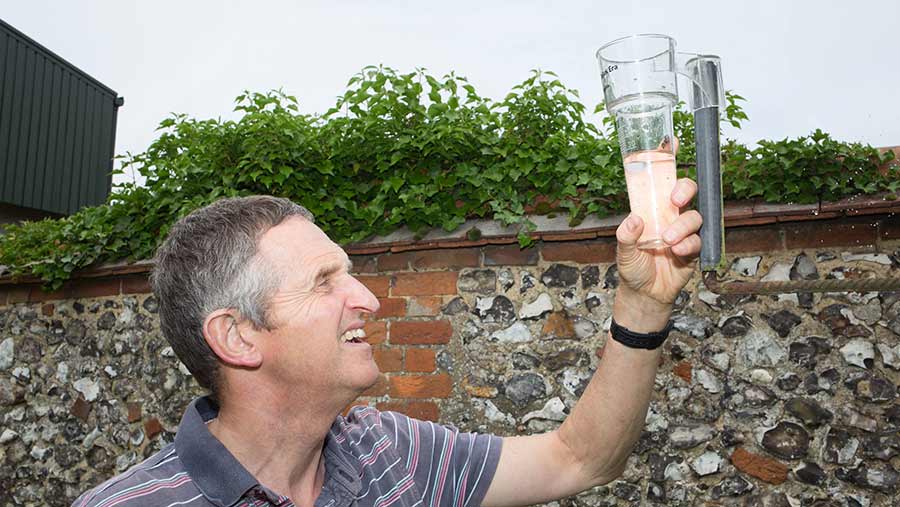Farmer Focus: One-fifth of oilseed rape crop likely to fail
 © Tim Scrivener
© Tim Scrivener The Atlantic lows that brought rain to the western parts of the UK seemed unwilling to pass over Reading, though Storm Callum did finally bring an appreciable amount.
The oilseed rape that we direct drilled just after the bank holiday has been suffering from a lack of moisture.
The flea beetles seem to have found some of it and are making matters much worse.
See also: 4 growers on how they get oilseed rape off to the best start
On the gravel areas the crop has three reasonable leaves, but it has failed to germinate on the heavier soils, where the little rain we had earlier didn’t make contact with the seed.
Depending on what type of winter we have, I estimate we will be about 20% down on our sown area.
Few options
I have resisted the urge to go out with the sprayer in a vain attempt to stop the march of the flea beetles.
I have heard of some very dodgy mixes being applied this year, mostly to no avail.
We have not used any insecticides on the autumn crops for many years, relying on seed-based treatments to protect non-target species.
It horrifies me that short-sighted politicians, who only care about winning votes, ignore science.
With the loss of Deter seed treatment next year, even more insecticide spraying will be undertaken to protect cereals against barley yellow dwarf virus, and the damage to beneficial insects will be even worse.
Delayed drilling is one option, but on our light land we need to have our crops in by the beginning of October.
Paying careful attention to temperature in the days after drilling and targeted spraying are our only other options.
What makes me really cross about all of this is that we will end up importing food that has been grown using these chemicals. That is environmental hypocrisy.

